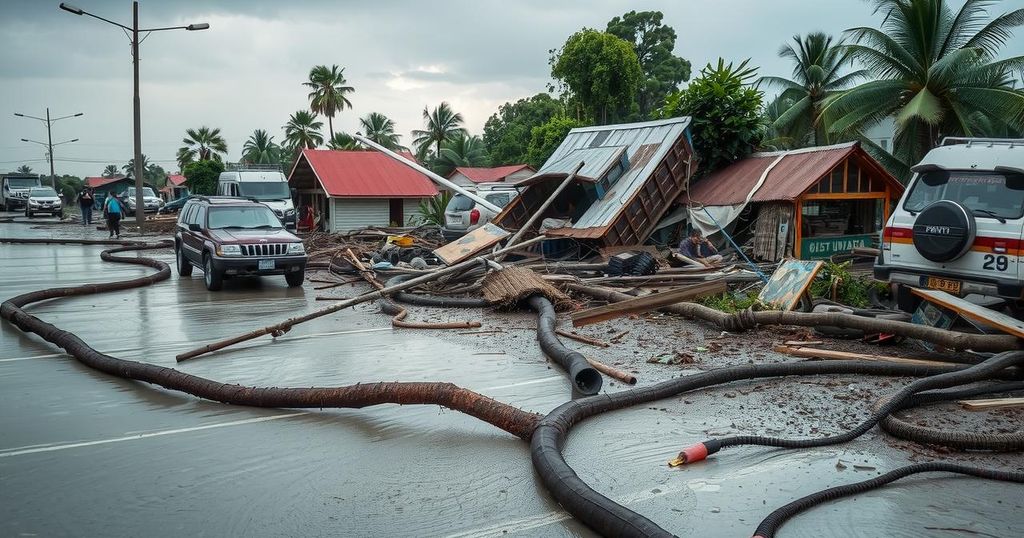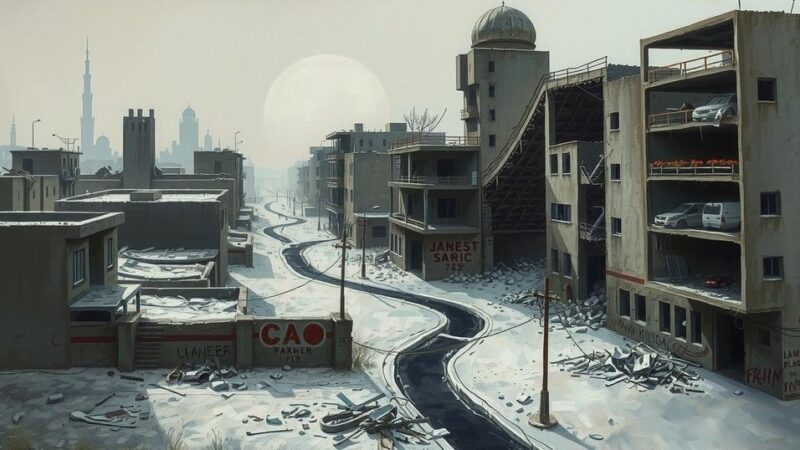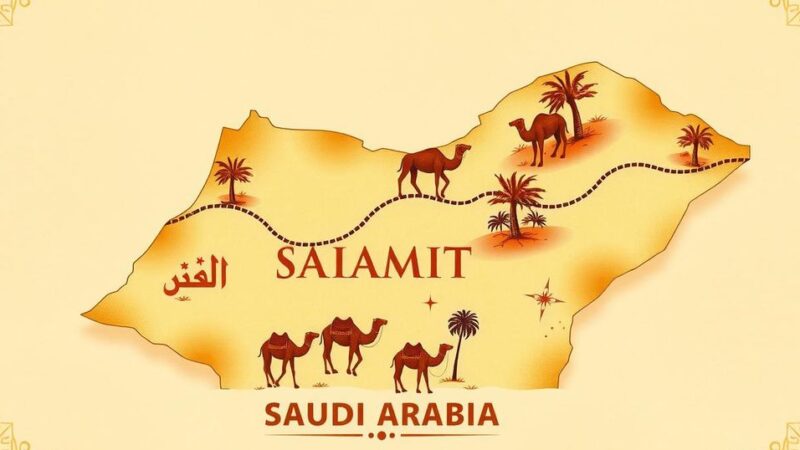Cyclone Chido has resulted in a rising death toll of 94 in Mozambique, with the northern province of Cabo Delgado being severely impacted. Approximately 620,000 people are affected, and experts attribute the cyclone’s strength to climate change. The nation is also dealing with ongoing political unrest stemming from post-election violence.
As reported by Mozambique’s disaster management agency, the death toll from Cyclone Chido has tragically increased to 94. The cyclone made landfall approximately one week ago, impacting several regions, notably the Mayotte archipelago and the northern province of Cabo Delgado in Mozambique. This area experienced extreme weather conditions, with wind gusts reaching 260 kilometers (160 miles) per hour and rainfall accumulating to 250 millimeters (10 inches) within a single day.
The storm has displaced around 620,000 individuals, with a significant concentration of over 500,000 people particularly affected within Cabo Delgado. Human-driven climate change has been cited as a contributing factor to the cyclone’s intensity and its profound impact on affected communities. Furthermore, Cabo Delgado continues to experience turmoil, not only from natural disasters but also due to ongoing unrest attributed to a long-standing Islamist insurgency.
Compounding the crisis, Mozambique remains in a state of recovery from recent political instability that emerged following post-election violence, which resulted in at least 130 fatalities. Following the election, Daniel Chapo, the presidential candidate of the ruling Frelimo party, visited the cyclone-impacted areas and urged the public to assist those affected by donating food and clothing. He emphasized, “Even if we are using them, our brothers need them.”
Cyclone Chido’s impact on Mozambique exemplifies the nation’s vulnerabilities to both environmental and sociopolitical challenges. The country is no stranger to cyclones and tropical storms, particularly in northern regions such as Cabo Delgado, which have previously encountered severe weather events. Additionally, the region’s ongoing political and social unrest has made recovery efforts more complex. The interplay between climate change and disaster escalation forms a significant concern for experts tracking meteorological phenomena in this part of the world. Understanding the implications of human actions on climate patterns can help illuminate why such cyclones have grown more severe.
In summary, Cyclone Chido has wrought significant devastation in Mozambique, with a heart-wrenching death toll that now stands at 94. The aftermath of the storm underscores the dual crises faced by the nation, encompassing both the challenges posed by natural disasters and the sociopolitical turbulence that continues to affect vulnerable communities. Efforts to mobilize support for those impacted are critical as families grapple with the consequences of this catastrophic event.
Original Source: www.dw.com






